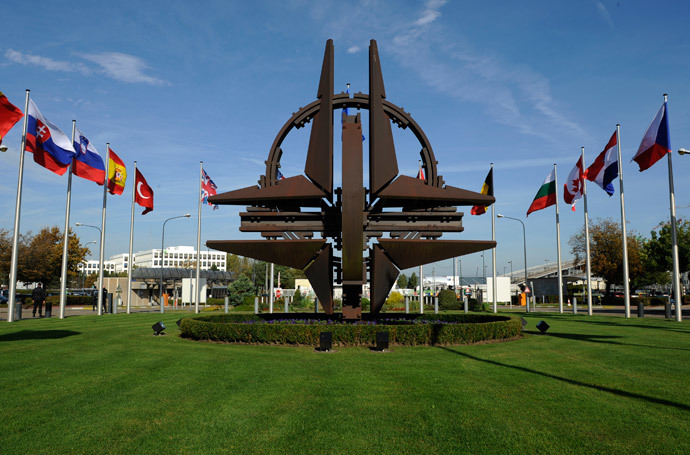‘Russia should have worried a long time ago about NATO enlargement’
It was agreed in Gorbachev’s times that NATO wouldn’t expand to the East, although successive Russian leaders made no effort to implement that clear-cut agreement, British writer and journalist Tariq Ali told RT.
“When Mikhail Gorbachev agreed to the reunification of Berlin he was given a very clear assurance by US Secretary of State [James] Baker, in Baker's own words, that "NATO would not move one inch to the East." Gorbachev then questioned him again saying that there will be no NATO expansion, that would be unacceptable, to which Baker said "I agree completely." “The problem here is that Russian leaders after Gorbachev made no effort whatsoever to implement what was a clear-cut agreement,” he said.
Tariq Ali, who is also historian, claims that Yeltsin, who ruled in 1990s, “accepted more or less everything the West did” with Western support for his actions in return. He says that the West usually supports those leaders “who do their bidding” and “once they get those leaders they accept anything from them.” However, when there is a strong leader, like Russia has today, confrontation begins.

“When they get a leader in Russia who challenges them on three or four key issues such as the expansion of NATO, what they are up to in Syria, sanctions on Iran - then this particular leader has to be punished. There are no principles as such, the only principle for the West is to do what we ask you to do or not. If you do - fine, if you don't - we punish,” he told RT.
Now the US and the EU are moving to include Ukraine in NATO, which would provoke tough reaction from Moscow and could result in a new wave of tensions. Tariq Ali considers that promoting ties between NATO and Ukraine “would be a disastrous decision.”
“It would be a huge provocation to Moscow. It would possibly result in Eastern Ukraine deciding to detach itself with the help of Moscow from the Ukraine. And it would create a new Cold War and a new era of confrontation once again,” he told RT.
Ali argues that NATO is an out-of-date institution that shouldn’t exist.
“It was a Cold War institution. After the end of the Cold War it should have been disbanded like the Warsaw Pact,” he said.
The reason why NATO still exists is because it’s the “military arm of the US and the EU carrying out actions decided by these governments in the name of the so-called international community.”
“NATO is now an arm of the American Empire, and has been for a long time, but these days it’s used as such and they want to surround areas they regard unreliable, such as Russia,” Tariq Ali said.
The statements, views and opinions expressed in this column are solely those of the author and do not necessarily represent those of RT.
The statements, views and opinions expressed in this column are solely those of the author and do not necessarily represent those of RT.











